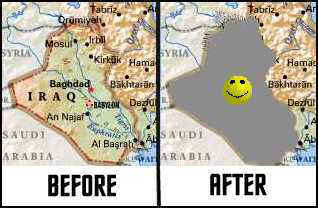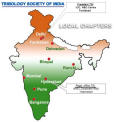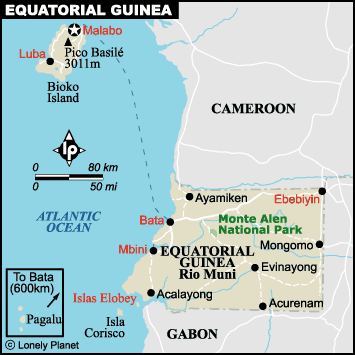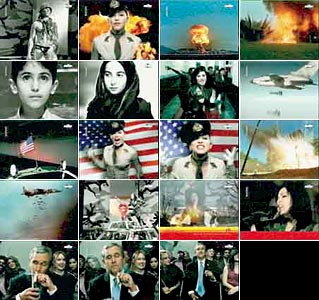TheQfactor
Sunday, June 29
 :The Affair
:The Affair
A married man was having an affair with his secretary.
One day, their passions overcame them and they took
off for her house, where they made passionate love all afternoon. Exhausted
from the wild sex, they fell
asleep, awakening around 8:00 p.m.
As the man threw on his clothes, he told the woman
to take his shoes outside and rub them through the
grass and dirt. Mystified, she nonetheless complied.
He slipped into his shoes and drove home.
"Where have you been?" demanded his wife when
he entered the house.
"Darling, I can't lie to you. I've been having an affair
with my secretary and we've been having sex all
afternoon. I fell asleep and didn't wake up until eight
o'clock."
The wife glanced down at his shoes and said, "You
lying bastard! You've been playing golf!".
Tuesday, June 24
Hi ... here's a fascinating quote from Digby's Blog
 "We deal in illusions, man. None of it is true.
"We deal in illusions, man. None of it is true.
But you people sit there day after day, night after night, all ages, colors, creeds. We're all you know. You're beginning to believe the illusions we're spinning here. You're beginning to think that the tube is reality and that your own lives are unreal. You do whatever the tube tells you. You dress like the tube. You eat like the tube. You even think like the tube.
In God's name you people are the real thing, WE are the illusion!"
Don't sanctify US Empire!
Praful Bidwai, Rediff.com, June 24, 2003
 It's a sign of its
It's a sign of its
deviousness that the National Democratic Alliance government is talking to various political parties in order to evolve a 'consensus' on despatching Indian troops to Iraq without giving an inkling of where it itself stands on this subject.
It's allowing the United States to determine the content and pace of its own deliberations on the issue.
As early as May 6, it permitted US embassy officials to meet Indian military personnel.
It is President Bush, not an Indian leader, who decided that a team of Pentagon officials would visit New Delhi on June 16. [...]
The US desperately wants other countries to put their troops in the firing line.
India is being asked to do this because the US' own close pro-war Western allies (barring Britain) have refused to collectively commit more than 15,000 troops.
The maximum for any country is 3,000 -- Italy.
Their public opinion doesn't countenance high military casualties in support of Iraq's occupation.
With 20,000 troops, India is being asked to demonstrate greater loyalty than the US's own military partners, including even Britain (which sent 15,000 soldiers).
The US will use Indian troops as cheap cannon fodder.
Even if it 'compensates' each of them (eventually and indirectly) at the same rate as United Nations peacekeepers (about $1,000 per month), that'll only cost America five percent of what it spends on every US soldier posted abroad.
The US will make billions of dollars by withdrawing its own soldiers and making Indians die.
India is politically useful too.
It enjoys a fair amount of goodwill in the Arab world because of its past as a Non-Aligned Movement leader and supporter of Arab nationalism.
India's military presence in Iraq as America's junior partner will to an extent help legitimise an occupation loathed by the Iraqi people. [...]
Monday, June 23
Harry Potter fever: Are you part of it?
BBC News. June 23, 2003
After a three-year wait, Harry Potter fans finally got their hands on the fifth book of the series at midnight on Friday.
Keen readers have been flocking to grab their copies of what is likely to be the fastest selling book of all time.
Are you caught up in Harry Potter mania? How did you get hold of your copy this weekend? What do you think of the Potter phenomenon?

The fifth book is a lot darker and has appealed to me that way since I am Harry's current age and can understand his emotions which are so different from the previous books in the series. I enjoyed it immensely; at many points I found it difficult to put down. It had everything a book has never before done to me: it managed to make me worried, make me laugh and make me cry. I have to dismiss the criticism it receives. It's true that many of the Harry Potter books have main aspects from other well-known novels, but it is still in its own nevertheless.
Lauren, England
I took my 18 year old daughter, Philippa, to buy the book at midnight on Friday. By 12.30 a.m. we were home and at 12.45a.m. she started to read unable to contain her excitement. The rest of the family went to bed but by 4.20a.m. she had finished the book. She loved the emotional ups and downs and the way Harry has matured. That's all she can say as she is banned from talking about it until the rest of the family has had a chance to read it.
Anne Norman, England
I was in Brent Cross on Saturday at lunchtime. Every shop had stacks of books including special retailers like the record shops. Does anyone really imagine that this would be a book you couldn't get hold of? Amazing hype brilliant, spin, a bit cruel for kids what with all the merchandise that comes with a new book. I suspect many parents dread the release of this book more than they dread a new Man United strip being released. It is so manipulative I think it is almost bad taste. This is about selling not about the virtues of encouraging literacy. Lets be clear, it is only a book, like Mr Beckham is only a footballer.
Mark Wilson, England
Reserved my copy online at Amazon then got cold feet in case it didn't turn up so queued at my local ASDA store from 11:00pm on Friday evening to be one of the first to get it. Amazon copy arrived at 7:30 next morning - No worries though, it meant my daughter and I didn't have to fight over it. Trouble was, my wife felt left out so by Sunday morning had gone to ASDA herself to buy a third copy (thankfully all three copies were purchased at half the cover price). Well worth the wait - so far I've only read up to Ch.16 but as with the previous four I'm hooked once more. Nice one JK, let's not wait so long for book 6!!!
David Atkinson, UK
The Harry Potter series must be some of the most over-praised, over-hyped books in history. The fact is that they are ably told amalgams of other more skilful and imaginative writers' ideas. At a very basic level, mix Anthony Buckeridge's Jennings series (about boarding school life and shenanigans) with Ursula Le Guin's 'A Wizard of Earthsea' and you will find Harry Potter's tired formula. I'm just glad that it's getting kids and adults reading a bit more.
Dravin, UK
Our rural Postman normally delivers from a Ford Escort sized van. When he delivered our copy of "Phoenix" on Saturday morning, he was in a 2 ton Mercedes! He had over 50 copies to deliver just in our tiny village, and said he'd never seen so many children watching for his arrival! Am I part of "the fever"? Absolutely!
John, England
Sunday, June 22
Nut could have killed us
Paul Thompson, The Sun, June 23, 2003
THE intruder at Prince William’s 21st party could have wiped out the Monarchy, Palace aides admitted last night.
Senior officials were horrified that crackpot comedian Aaron Barschak might have been a mad suicide bomber hellbent on carnage.
 Virtually the entire Royal Family were put at risk by the breach of security at Windsor Castle.
Virtually the entire Royal Family were put at risk by the breach of security at Windsor Castle.
Yesterday the Queen was said to be absolutely “livid” with police for allowing Barschak, who was dressed as terror chief Osama Bin Laden, to sneak into the party.
And Prince William told pals he was “furious” the gatecrashing incident had spoiled his big bash.
Barschak, a nutty stand-up comic desperate for publicity, conned his way into Windsor Castle at the height of the Saturday night party.
Security around the Royal Family is meant to be at its tightest as they are considered a prime terror target for al-Qa’ida fanatics.
Yet they woke up yesterday morning to the realisation they all could have been killed had the intruder been carrying a bomb.
A Royal source said: “This is being taken very, very seriously. If it had been a suicide bomber who got on stage he could have wiped out the Royals.
“It would have been the end of the Monarchy and we would have been picking up the pieces today. [...]
U.S. troops frustrated with role in Iraq
Daniel Williams and Rajiv Chandrasekaran, Washington Post, June 20, 2003
Facing daily assaults from a well-armed resistance, U.S. troops in volatile central Iraq say they are growing frustrated and disillusioned with their role as postwar peacekeepers.
In conversations in a half-dozen towns across central Iraq, soldiers complained that they have been insufficiently equipped for peacekeeping and too thinly deployed in areas where they are under attack from fighters evidently loyal to deposed president Saddam Hussein. Others questioned whether the armed opposition to the U.S. presence in Iraq may be deeper and more organized than military commanders have acknowledged.
 "What are we getting into here?"
"What are we getting into here?"
asked a sergeant with the U.S. Army's 4th Infantry Division who is stationed near Baqubah, a city 30 miles northeast of Baghdad. "The war is supposed to be over, but every day we hear of another soldier getting killed. Is it worth it? Saddam isn't in power anymore. The locals want us to leave. Why are we still here?" [...]
Indian Troops in Iraq? human beings as cannon fodder
Praful Bidwai, ZNet, June 20, 2003
 The proposal to despatch Indian troops to Iraq
The proposal to despatch Indian troops to Iraq
under the general command of the United States military has ballooned into a first-rate political controversy in the country. Going by the mood of a well-attended public meeting in New Delhi on Monday -- the very day a Pentagon team met senior Indian officials at President Bush's behest --, there will be fierce opposition to any military collaboration with the occupation forces in Iraq. There may be a lesson in this for Pakistan, which too is considering sending troops to Iraq.
Ironically, if India and Pakistan decide to collaborate militarily with the US in Iraq, each with a view to outmanoeuvring the other, they will end up grievously hurting and victimising themselves!
The Indian government has gone to fairly great lengths towards agreeing on military collaboration with Washington in Iraq since discussions began on the issue in early May. It is now looking for a fig leaf in the form of United Nations authorisation so that Indian troops do not overtly operate under US command and salute the American flag, but seemingly work within a multilateral framework.
It is unclear, though not impossible, if such authorisation can come about via manipulation of the UN Security Council. But it is clear that the Bharatiya Janata Party-led government is being devious. It is presenting the despatch of troops to Iraq as if it were some kind of seamless continuation of the "peace-keeping" operations that India has undertaken under UN auspices for decades. This is totally untrue. [...]
Equatorial Guinea: A Few Rich, Many Poor
Agustin Velloso, Counterpunch, June 9, 2003
Last Wednesday, in fact pick any day, in the capital of a small country in Central Africa, a student was about to take a Latin exam, three young lawyers were talking in an office, a boy was drinking water from a public fountain and a public servant was answering the visitor's question by telling him that he had no data on what he wanted to know.
What do such random actions have in common? For one, none of them was doing what he seemed to be doing; also, the cause of their actions was very far from where they were taking place; ...
This took place in the Public Relations and Information Department Office of this country's PNUD, a UN organization, in a developing country that seems to be floating on a pool of oil similar or maybe larger than that of Kuwait. Since the organization responsible for knowing the answer could not respond, the visitor's only resort was attempting to find out the answer on his own. In a case like this, nothing is better than a stroll around the city.

... Why is it that the most foreign-indebted countries, the ones with higher poverty rates enjoying more international cooperation and financial aid, are governed by dictators and have their upper classes settled, together with their money, in the richest and most developed countries?.
The sight of streets covered in mud, the filth of residual water running out in the open, garbage scattered everywhere, the absence of sidewalks barely lit by scarce street lights, the lack of public transportation, banks, road signs or leisure spaces, not to mention libraries, civic centers, book stores, not a sign of urban or any other planning,makes one think that the 500,000 crude oil barrels that are pumped daily (that is assuming that it is not one million barrels, since there are no official figures) in a country with a population below 500,000, do not remain in the country even for a minute; instead they leave the country to enrich someone else. [...]
It seems, then, that the moment has arrived for the formulation of the first law of national economy in Africa: the largest the natural wealth of a country, the lower is the probability that its population is going to enjoy it. Angola and old Zaire are only two egregious examples of this law.
The second law states that the larger the foreign intervention in an African country, mainly via international cooperation, the lower the probability of a sustained development.
Unfortunately, although protagonists themselves, not even the few university students in this country can perceive this.
That is why that student was making huge efforts to pass a subject that is forgotten and relegated to a few specialized centers of higher education in the West, without suspecting that he will never be able to make use of what he has learned, unless it is to exclaim, as the classics did: Homo homini lupus.
Saturday, June 21
DNA tests after missiles strike 'Saddam convoy'
Jason Burke , The Observer, June 22, 2003
 Human remains removed after US Hellfire missiles target source of dictator's satellite phone call
Human remains removed after US Hellfire missiles target source of dictator's satellite phone call
Baghdad: American specialists were carrying out DNA tests last night on human remains believed by US military sources to be those of Saddam Hussein and one of his sons, The Observer can reveal.
The remains were retrieved from a convoy of vehicles struck last week by US forces following 'firm' information that the former Iraqi leader and members of his family were travelling in the Western Desert near Syria.
Military sources told The Observer that the strikes, involving an undisclosed number of Hellfire missiles, were launched against the convoy last Wednesday after the interception of a satellite telephone conversation involving either Saddam or his sons.
The operation, which has not yet been disclosed by the Pentagon, involved the United States air force and ground troops of the Third Armoured Cavalry Regiment based around Ramadi, a major town 70 miles west of Baghdad. [...]
Aryabhatt: The famous Indian mathematician & astronomer who was born in 476 A.D, in Kusumapura, now called Patna.
In 499, when he was only 23 years old, Aaryabhatt wrote his Aaryabhattiya, a text covering both astronomy and mathematics. With regard to the former, the text is notable for its for its awareness of the relativity of motion.
This awareness led to the astonishing suggestion that it is the Earth that rotates around the Sun.
 The Aryabhattiya is a summary of all of maths known at the time in India.
The Aryabhattiya is a summary of all of maths known at the time in India.
A lot of the Aryabhattiya was to do with the maths of astronomy, because astronomy was the subject that needed the most complicated maths.
It also covered arithmetic, algebra and trigonometry.
It gives formulas for the areas of a triangle and a circle which are correct, but the formulas for the volumes of a sphere and a pyramid are wrong.
Aryabhata also gave an approximation for pi - the ratio of circumference of a circle to its diameter - which he calculated to be 3.1416.
In addition, Aaryabhat.a "invented a unique method of recording numbers which required perfect understanding of zero and the place-value system." (Ifrah 2000:419)
Given the astounding range of advanced mathematical concepts and techniques covered in this fifth century text, it should be of no surprise that it became extremely well known in India, judging by the large numbers of commentaries written upon it.
It was studied by the Arabs in the eighth century following their conquest of Sind, and translated into Arabic, whence it influenced the development of both Arabic and European mathematical traditions.
Sunday, June 15
Genre: Marriage Jokes

The chairman of the Mathematics Department at the college sent the following email to his wife:
Dear Helen, You know that you are 54 yrs old and are no longer able to satisfy all of my needs. By the time you read this I will be off to meet my 18-year-old intern at the Holiday Inn. I'm sure you understand and agree that my needs are important. I will try to be home before midnight.
Well after reading the message, she immediately sent the following reply:
Dear Mack, Received your email and I do understand needs. Just wanted to remind you that you also are 54 yrs old. By the time you receive this reply, I will be at the Ritz Carlton meeting with our 18-year-old pool boy.
I know that as a mathematics professor you will understand that 18 goes into 54 more times than 54 goes into 18. Turn off the lights when you go to bed and don't wait up, I'll be home very late.
Images from "American Life," the Video Madonna Won't Release
The Memory Hole, April 2003
 The first video, "American Life," from Madonna's new album of the same name will not be released. Her official Website contains the following notice:
The first video, "American Life," from Madonna's new album of the same name will not be released. Her official Website contains the following notice:
MADONNA PULLS NEW AMERICAN LIFE VIDEO "OUT OF RESPECT FOR ARMED FORCES"
Madonna has decided to withdraw the video for her new single "American Life" which has been the subject of rumors and misinformation.
... The video includes lots of militaristic images, including a mushroom cloud, a jet dropping bombs, pseudo-refugee children, and the singer herself in various uniforms. It ends with Madonna tossing a grenade into the lap of a George W. Bush lookalike. He picks it up and lights a cigar with it, since it's really a lighter (hardy-har-har).
The video was already being played in Germany, and perhaps elsewhere, when Madonna decided to scrap it. Thus, bootleg copies have been floating around the Net, and Websites that posted them have received threatening letters from Madonna's label, Warner Bros. (I'm sure that it's still available on peer-to-peer (P2P) networks, though.)
The artist released the following statement:
" I have decided not to release my new video. It was filmed before the war started and I do not believe it is appropriate to air it at this time. Due to the volatile state of the world and out of sensitivity and respect to the armed forces, who I support and pray for, I do not want to risk offending anyone who might misinterpret the meaning of this video." [...]
CAPITALISM TRUMPS DEMOCRACY
Agence France-Presse, June 12, 2003
U.S. asks 10 companies to submit plans for Iraq economic reform plan
Ten US companies have been asked to submit bids for a plan to reshape the Iraqi economy into a free-market system with a major privatization program.
The 10 firms in the competition are: BearingPoint; Booz, Allen and Hamilton; Nathan Associates; IBM Global Services; Development Alternatives, Inc.; Carana Corp; Abt Associates; Chemonics; Deloitte and Touche; and Financial Markets International. [...]
A Review of Joel Kovel's The Enemy of Nature
Ted Dace, Counterpunch, June 14, 2003
[The Enemy of Nature: The End of Capitalism or the End of the World?
by Joel Kovel
Zed Books]

For Joel Kovel the revolution is only a matter of time. Marx was right: Capitalism cannot help but prepare the stew in which it will roast. But the old man got one thing wrong. The ultimate antagonist of capital is not labor but nature. [...] If the argument that capital is incorrigibly ecodestructive and expansive proves to be true, then it is only a question of time before the issues raised here achieve explosive urgency."
True enough, but that doesn't mean the Revolution is just over the horizon. What Kovel overlooks is the likelihood that worsening environmental conditions will exacerbate the scarcity that already pits us against each other. While the rich compete to survive as rich people, the poor compete to survive, period.
.. Precisely when, between now and doomsday, do the masses finally revolt?
As Kovel himself points out, capitalists are perfectly willing to perpetuate eco-destabilization as long as they successfully insulate themselves and perhaps even profit from the meltdown all around them.
He cites an article in London's Guardian Weekly purporting to show a shift in elite opinion since the early 70s, when the Club of Rome called for "limits to growth." These days, digging our own grave is the ultimate business opportunity.
Taking Kovel to task in the September, 2002 issue of Monthly Review, John Bellamy Foster noted, "We should not underestimate:
-- capitalism's capacity to accumulate in the midst of the most blatant ecological destruction, to profit from environmental degradation... and to continue to destroy the earth to the point of no return--both for human society and for most of the world's living species."
Times are tough? How about a liquidation sale? Like Marx before him, Kovel finds a silver lining where none exists. There's just no pulling the socialist rabbit out of the capitalist hat.
A Macabre Alliance
Gila Svirsky, Counterpunch, June 14, 2003

It was a good week for the extremists on both sides. As they perceived some hope rising last Wednesday in the seaside resort of Aqaba, they got to work:
The very day after all those high falutin' words, Sharon sent a hit team into the West Bank and knocked off two senior Hamas figures. So Hamas and allied groups made use of the weekend to kill 5 Israelis in Gaza and Hebron. Tuesday was a big one: Sharon launched Apache gunships at Rantisi, senior political leader of Hamas. Though Rantisi survived, the funerals of 2 more Hamas leaders and 6 collaterally damaged men, women, and children helped balance things out. But Rantisi wasn't down for long and on Wednesday, a suicide bomber sneaked into downtown Jerusalem, adding 17 more bodies to the count. That evening did not find Sharon idle and, together with Thursday, he sent the boys back for 9 more killings (counting women and children) in various locations. Hamas got in one more, too. [...]
They Just Don't Want to Know: Of Dissidents and Dissonance
Ben Tripp, Counterpunch, June 14, 2003

Like a full-scale papier-mache model of the Earth, the truth is so enormous that it is hard to even comprehend. And once you figure it out, the question becomes where to put it? Because it won't fit on the shelf in the living room.
I refer of course to the true reason why Americans are not more concerned at the patent absence of 'Weapons of Mass Destruction' in Iraq.
I spent, I confess, several weeks waiting for the thunderous uproar that would inevitably follow the equally inevitable discovery that Iraq had no biological agents, no foul chemicals, no missiles capable of circling the papier-mache globe and blowing up Daytona Beach, Florida (or similar). The discovery has been made. You want mustard gas in Iraq, you'd better start eating pastrami. Yet the American public doesn't care. There will be no consequences to the Bush Administration for the naked, baseless savagery it perpetrated upon Iraq's people.
Why not? The answer hit me like a full-scale papier-mache model of the Earth: Americans aren't upset about the Big Lie because they never believed it in the first place.
They just didn't want to know.[...]
America is a nation divided: on one side, there are those who take the "my country, right or wrong" approach.
On the other side (the outside) are the Americans who believe that something has gone horribly, horribly wrong. [...]
... They're just depressed and afraid. The Powers That Be call this mindset "moral relativism", which is another way of saying "who are you going to believe- me, or your own eyes?"
The correct answer, for all you relativists out there, is A) God said it, I believe it, that settles it.
This is the absolutist position, not only with respect to religion but also nationalism, brand loyalty, and musical tastes: hence the expression "alls I need is Jesus, Jersey, Jack and a Jukebox."
The problem with the absolutist approach to American affairs is that it does not allow for human nature- quite aside from being impossible, stupid, backwards, and rotten. [...]
We've turned into a collective special-interest bad guy: who can handle that kind of a downer?
America invaded another nation, unscrewed its head and took a giant dump down its neck--unprovoked.
Confronted with the singularly un-American nature of this exploit, our leaders responded by claiming we had to do it-- because this enemy nation was aiming a vast artillery of deadly weapons designed especially to kill blonde people at us.
I don't think all that many people really believed it, not really really. But they went along with it, because to confront the real reasons for such aimless aggression would be too horrible for their fragile worldviews and patriotic self-images to bear. [...]
When the 'WMD' bit turned out not to be true, the rationale switched to exporting American Democracy by force. Which is an oxymoron, ... ... a common symptom of cognitive dissonance.
You cannot force someone to be free, any more than you can teach them a lesson by killing them (note to self).

I don't think many Americans cared at that point; Bush said it, I believe it, that settles it.
... The beauty part of cognitive dissonance is the worse it gets, the more people throw up [their hands] and say "who cares?"
In this way such public works projects as genocide and empire-building can be accomplished, because people refuse to care. It's too damn demanding, too scary, and too damaging to that ever-threatened bird called Self Esteem. ...
... But this is the time to take a good long look at your mindset, before things get so awful you find yourself goose-stepping down the Reichsparteitag rather than face the facts. Are you in a state of cognitive dissonance? Does the evidence of your senses not jibe with what you've been told is The Way Things Are?
[... more]
Saturday, June 14
The “Axis of Anarchy”
Harun Hassan, Open Democracy, June 12, 2003
If any continent deserves intervention, it is Africa.

In the Democratic Republic of Congo and East Africa a devastating human crisis
– failed states, ethnic violence, rampant disease and endemic insecurity – presents Bush and Blair with a moral as well as a political challenge.
With the war in Iraq over, George Bush and Tony Blair are still having difficulties convincing their critics that they were justified in taking this unprecedented military action. [...]
By finding new targets – by which I do not refer to the invasion of the remaining “axis of evil” countries – these two western leaders could show that they are genuinely committed to protecting world peace and liberating the oppressed.
... whereas there are other trouble zones around the world where people are being far more violently oppressed, killed, raped, maimed, kidnapped and denied the right to live in peace. The epicentre of this “axis of anarchy”, as it might be called, is the Democratic Republic of Congo (DRC).
Democratic Republic of Congo
DRC, formerly Zaire, is the largest country in Africa. It is experiencing one of the most complicated and costly conflicts since 1945. In a terrible humanitarian catastrophe, at least 3.3 million people have died – the vast majority from starvation and disease, but many from deliberate bloodletting.... ...On top of this, the country is a battleground for six other African countries: Zimbabwe, Angola and Namibia take the DRC government’s side, while Uganda, Rwanda and Burundi support different armed rebels. [...]
Friday, June 13
AFRICA: Rushing for the Exit
Victor Youmbi, Open Democracy, June 14, 2003
Anyone with the brains, talent or economic resources is trying to leave Africa, and who can blame them
Economic collapse and corruption in Africa mean that Europe’s efforts to stem immigration from the continent will remain futile until the underlying causes are addressed.
Whenever a group of young Africans are invited to a European country to attend a cultural or sports event the original number hardly ever returns.
260 young representatives of the Cameroonian Catholic church went to the World Youth Festival in Rome for the third millennium celebrations. Only sixty returned. The others had “evaporated”. We are dealing with a social phenomenon which is related not only to the living conditions of Africans but also to the wonderland projected by the programmes of French television channels aired in Africa.
In his recent book about life in Douala Gilles Séraphin shows how the longing for social status haunts the young. Their prospects thwarted, they desire nothing more than to emigrate, in order to achieve, on returning, the social status so much yearned for. [...]
A new way for British government?
Anthony Barnett, Open Democracy, June 12, 2003
In advance of a global summit of centre-left leaders in London, Geoff Mulgan has mapped a vital cultural shift in the inner life of British governance – from ‘we know best’ to ‘we learn best’. The openness and practicality of his argument make it both welcome and deceptively radical, says Anthony Barnett; but does it, like Tony Blair's 'Third Way' itself, also carry some Old Britain paternalism into the new media age?


On 11 July 2003, heads of government from Brazil’s President Lula to Germany’s Chancellor Schröder will gather in London for a ‘progressive summit’. The summit’s aim – according to the host, British prime minister Tony Blair – is to set out the policies needed for ‘centre-left parties to win, use and retain power’, which, he asserts is the ‘ultimate test of a progressive political project’.
The summit is a continuation of meetings in New York, Florence, Berlin and Stockholm, which date back to the time when Bill Clinton was in the White House, France had a socialist prime minister and ‘The Third Way’ was the phrase of the moment.
As openDemocracy’s opening contribution to a discussion that coincides with the summit, we publish an essay by Geoff Mulgan on how governments can learn. LINK.
It is a more deeply radical document than it appears. Behind its calm survey of the way better policies can be developed is a step-change in the role and character of the public sphere. What appears as a mere description is a new direction chosen and advocated. [...]
Wednesday, June 11
Dress A Student Game
Recognize the eco-warrior, the jock, the townie, the dude skater ...?
--Guardian Interactive Guide
Outrage At Administration Lying, Misses a Crucial Point
Ira Chernus, University of Colorado, Boulder
Wow. The government knew all along there were no weapons of mass destruction in Iraq. And they used that as an excuse to take us to war anyway. My generation, raised on the film Casablanca, would say “I’m shocked!—shocked!—George W., to discover lying going on in your administration.” A younger generation would say, “Well, duh!!!” I mean, what did anyone expect? A government that would tell us only the truth?
... we also need to consider the peculiar fate of facts in this postmodern world. While we quite rightly drink in the words of a Noam Chomsky or a Howard Zinn (and we should be immensely thankful for them), we would do well to give equal time to a Fredric Jameson.
Jameson taught us, better than anyone else, that the American empire rests on three legs: global corporate capitalism, digital technology, and the triumph of image over factual reality. He taught us why the empire needs each of these legs to stay stable, and how each reinforces the others in a totalitarian web of seemingly benign postmodern imperium. Most of us already understand the power of, and links between, digitized high-tech and globalization.
The crucial piece many have missed is the third leg. In postmodern capitalism, commodities are reduced to digital images, and images are sold as commodities. The images take on a life of their own. They become the reality. Reality becomes an endless commercial. Advertising is no longer just a means to an end; it is the essential activity of our whole society.
That is a simple truth we all know, because most of us live it every day. I surely do. I think The Matrix and the new Honda ad and my new screensaver are pretty cool, too.
Intellectuals like Jameson help us take the next step, to understand what happens when images replace reality.
Our society stops asking the questions that used to point the way to truth: “Does the image accurately represent the reality it claims to represent? Does it represent any reality at all?” When those questions are no longer asked, the issue of truth becomes irrelevant. [...]
So the Bush administration's warnings of Iraqi WMD were merely images, an ad campaign clever enough to sell us a war we did not need. But no one ever bought the reality, because there was no reality to buy. The public bought the commercials.
In a postmodern society, that is all we ever buy, because images are all that is for sale.
Then, when the truth hits the front pages of the New York Times and Washington Post, it’s only another bunch of new images. For most Americans, there can be no jarring clash between image and reality, because they long ago stopped asking about the relation between image and reality. [...]
Our outrage at the Bush administration's lies is an attack upon a symptom. Symptomatic relief is always welcome. But it doesn’t make sense to deal with symptoms and ignore the underlying disease. If you want to cure the disease, you first have to understand it. A place to start is through Jameson’s brilliant analysis. Click on LINK.
We must go on unmasking lies and presenting factual truth. It will make some difference. But it won’t make enough difference unless, at the same time, we try to rescue the very idea of truth itself, before it disappears forever into that kaleidoscope of digitized images
Genre: Male Jokes
The strong young man at the construction site was bragging that he could outdo anyone in a feat of strength. He made a special case of making fun of one of the older workmen. After several minutes, the older worker had had enough.
"Why don't you put your money where your mouth is," he said. "I will bet a week's wages that I can haul something in a wheelbarrow over to that outbuilding that you won't be able to wheel back." "You're on, old man," the braggart replied. "Let's see what you got."
The old man reached out and grabbed the wheelbarrow by the handles. Then, nodding to the young man, he said, "All right. Get in."
Bush, Advani discuss issue of troops for Iraq
Sridhar Krishnaswami, The Hindu, June 11, 2003
WASHINGTON: Issues of cross-border terrorism and the possibility of sending Indian troops to Iraq as part of a peacekeeping-cum-stabilisation operation were high on the agenda of the discussion between the United States President, George W. Bush, and the Deputy Prime Minister, L.K. Advani, at the White House on Monday.
Mr. Advani had gone to the White House for a meeting with the National Security Adviser, Condoleezza Rice, when Mr. Bush very soon dropped by.
The meeting between Mr. Advani and Mr. Bush lasted about 30 minutes, officials and diplomats said. [...]
Sunday, June 8
How the Israelis & Paestinians Came to War: A Brief History
--An Interactive Guide from the Guardian
Our man in Baghdad
Megan Lane, BBC News Online, 19 may, 2003
Throughout the Iraq war, Rageh Omaar stood on a hotel rooftop in Baghdad and told it to us straight. We talk to the news man whose cool, calm delivery - and boyish good looks - made him a household name. [...]
For three months - almost without cease - he took the temperature of the beleaguered capital in reports seen by almost 90% of Britons on either BBC bulletins or News 24, despatches that were also syndicated widely abroad.
In the process, Omaar developed quite a fan base. Viz magazine dedicated its latest issue to "Britain's best-loved bullet-dodging dreamboat". The New York Post dubbed him the Scud Stud. A website all but sold out of T-shirts bearing his noble visage. And in New Zealand, where tributes come typically low-key, a reporter with the national radio network named one of her lambs Rageh.
What he finds somewhat bewildering is the interest in him as a person - indeed, when he took a break from reporting duties, the BBC received numerous e-mails inquiring as to his safety. [...]
Rumsfeld gives Advani a surprise, calls on him at latter's hotel
T V Parasuram in Washington, Rediff.com, June 09, 2003
In another major gesture signaling the importance the US attaches to ties with India, US Defence Secretary Donald Rumsfeld called on Deputy Prime Minister Advani shortly after the latter arrived in Washington from New York on a week-long official visit to the US. [...]
Bilateral issues, including growing defence cooperation between the United States and India, figured prominently during talks between the two leaders.
"Secretary Rumsfeld raised the question of India contributing troops for the stabilisation of Iraq. The deputy prime minister said that this matter was under the consideration of the government of India and that a decision will be taken after taking all aspects into account," it said.
The two leaders suggested have proposed that the next meeting of the US-India Defence Policy Group in Washington on August 6-7 for, the statement said.
America's war on terror goes awry in Pakistan
Ahmed Rashid, YaleGlobal, June 4, 2003
A year and half after American Special Forces swept away the Taliban government of Afghanistan, the group is alive and well - and spreading their ideology to new horizons - in neighboring Pakistan. The apparent survival of the Taliban - most of their senior leaders now live in Pakistan - and the persistence of their ideology point to the monumental failure of the American war on terror. The group's re-emergence as a political force also bodes ill for civil liberties in Pakistan - a key US ally - and for the prospects for democratization in other Islamic countries.
Last October, an alliance of fundamentalist Islamic parties rode on widespread anger at the American war in Afghanistan to take power in Pakistan's sensitive North West Frontier Province (NWFP), which borders Afghanistan. The alliance has since ordered compulsory prayers for the population and created a Taliban-style Department of Vice and Virtue to enforce their rules. Their broader campaign - to turn all of Pakistan into a state modeled after the Taliban - is only one of several crises that have paralyzed Pakistan and its nine-month-old civilian government. Many Pakistani politicians believe that President General Pervaiz Musharraf and the army may be on the verge of wrapping up parliament and re-imposing military rule [...]
Genre: Little Johnny Jokes
A Sunday school teacher of preschoolers asked the students to learned one fact about Jesus by the following Sunday. The following week she asked each child in turn what he or she had learned.
Susie said, "He was born in a manger."
Bobby said, "He threw the money changers out of the temple."
Little Johnny said, "He has a red pickup truck but he doesn't know how to
drive it."
Curious, the teacher asked, "And where did you learn that, Johnny?"
"From my Daddy," said Johnny. "Yesterday we were driving down the highway,
and this red pickup truck pulled out in front of us and Daddy yelled at him,
'Jesus Christ! Why don't you learn how to drive?'"
Saturday, June 7
Wolfowitz: Iraq war was about oil
George Wright, The Guardian, June 4, 2003
Editor's note: The Guardian has now retracted this article and issued the following statement:
A report which was posted on our website on June 4 under the heading "Wolfowitz: Iraq war was about oil" misconstrued remarks made by the US deputy defence secretary, Paul Wolfowitz, making it appear that he had said that oil was the main reason for going to war in Iraq. He did not say that. He said, "The most important difference between North Korea and Iraq is that economically we just had no choice in Iraq. The country swims on a sea of oil." The sense was that the US had no economic options by means of which to achieve its objectives, not that the economic value of the oil motivated the war. The report appeared only on the website and has now been removed.
The substance of the original article can still be read
here.
Bloodshed, Fear And a Deadly Ambush Killings At Fallujah
by Robert Fisk, The Independent, June 06, 2003
FROM HIGH over Iraq yesterday, President George Bush cast his Olympian eye over ancient Mesopotamia after praising the Americans in Qatar who had "managed" the war against Saddam Hussein. But far below him, on a dirty street corner in a dirty town called Fallujah that Mr Bush would prefer not to hear about, was a story of American blood and American power and American boots smashing down the front gates of Iraqi homes.
"She's got a gun," an American soldier shouted when he caught sight of a woman in her backyard holding a Kalashnikov assault rifle. "Put it down! Put the gun down!" he screamed at her. The soldiers were hot and tired and angry. They'd been up since 3am, ever since someone fired a grenade at a lorry-load of troops from the 101st Airborne. You could see why Mr Bush chose to avoid any triumphal visits to Iraq.
Survivors of the ambush were among the soldiers yesterday, remembering the early hours as only soldiers can. "They fired a grenade at a two-and- a-half ton truck full of the 101st Airborne and then straffed it with AK fire and then just disappeared into the night," one of them told me. "The guys were in a terrible state. One of our soldiers was dead with his brains hanging out of his head and his stomach hanging out, and there were eight others in the back shouting and pulling bits of shrapnel out of their legs."
Before dawn, the Americans came back to wash their comrades' blood off the street. Then they returned once more to deal with the people who live in this scruffy corner of the old Baathist city of Fallujah.
In Qatar - before his 75-minute flight through Iraqi airspace - Mr Bush did his best to lay down an appropriately optimistic narrative of the Iraq war. Iraq was a better place now that Saddam had gone - "a great evil has been ended," he said - and praised the "humanitarian work of US troops".
On weapons of mass destruction, he was understandably a little more circumspect. "We are on the look. We will reveal the truth ... But one thing is certain. No terrorist network will gain weapons of mass destruction from the Iraqi regime, because the Iraqi regime is no more."
But of course, no weapons of mass destruction have been found. [...]
... And The Truth The Victors Refuse To See
Mr Blair Paid a Flying Visit Last Week; Next Week it’s the Turn of President Bush. Reporting from Baghdad, Robert Fisk Suggests an Itinerary That Would Open Their Eyes to What’s Really Going on in Iraq
by Robert Fisk, The Daily Times/Pakistan, June 3, 2003
Iraqis, it now seems certain, are to be blessed this week with a visit from their Liberator-in-Chief, George Bush Jr. While Washington has been avoiding all mention of the trip, the new Iraqi newspapers - one of the few positive results of “liberation” here - have been happily speculating for days on Bush’s arrival.
And we all know what the American President would like to do when he arrives: to be filmed inspecting Saddam’s weapons of mass destruction, the purported reason for the Anglo-American invasion illegally launched against Iraq. The problem, of course, is that there don’t appear to be any.
So how will the Bush public relations boys manage this particular piece of theatre? [...]
... First, join a gas queue. George Bush will help to push his limousine to the back of the three-mile petrol line by the Hussein bridge - many motorists run dry before they reach the queue - and here he will wait ... and wait and wait. Eight hours if he’s lucky, maybe 12. Maybe 24.
Then George Bush can visit the 158 Iraqi government ministry buildings that should be the infrastructure of the new US-backed government which he has sworn to establish here. He will see, of course, that of the 158 buildings, every one was looted and then burned after the Americans occupied Baghdad.
Next, a trip to the former Saddam City, now “Sadr City”, the vast, foetid, boiling Shia Muslim slums where power is now dangerously divided between three prelates, all of whom oppose the American presence with varying degrees of ferocity and self-interest. Mr Bush will discover that nationalist and religious sentiment - rather than Iranian “terrorism” or “interference” - demand an American departure.
Mr Bush will take tea with a Shia family at midday when, as usual, there is no electricity, so that he, like them, will sweat for an hour in their hovel. [...]
... President Bush will leave Iraq as he came - not by air, because the US authorities still don’t allow commercial flights to Baghdad - but on the long and dangerous road to Amman where armed thieves roam the motorway past Ramadi, where no driver goes by night. He will thus experience life for ordinary Iraqis in the wake of their “liberation”: the fear of anarchy and lawlessness, of robbery and assault. [...]
Instant-Mix Imperial Democracy
(Buy One, Get One Free)
Arundhati Roy, May 13, 2003
Presented in New York City at The Riverside Church
Sponsored by the Center for Economic and Social Rights
In these times, when we have to race to keep abreast of the speed at which our freedoms are being snatched from us, and when few can afford the luxury of retreating from the streets for a while in order to return with an exquisite, fully formed political thesis replete with footnotes and references, what profound gift can I offer you tonight?
As we lurch from crisis to crisis, beamed directly into our brains by satellite TV, we have to think on our feet. On the move. We enter histories through the rubble of war. Ruined cities, parched fields, shrinking forests, and dying rivers are our archives. Craters left by daisy cutters, our libraries. [...]
But when a country ceases to be merely a country and becomes an empire, then the scale of operations changes dramatically. So may I clarify that tonight I speak as a subject of the American Empire? I speak as a slave who presumes to criticize her king.
Since lectures must be called something, mine tonight is called: Instant-Mix Imperial Democracy (Buy One, Get One Free).
Way back in 1988, on the 3rd of July, the U.S.S. Vincennes, a missile cruiser stationed in the Persian Gulf, accidentally shot down an Iranian airliner and killed 290 civilian passengers. George Bush the First, who was at the time on his presidential campaign, was asked to comment on the incident. He said quite subtly, "I will never apologize for the United States. I don't care what the facts are."
I don't care what the facts are. What a perfect maxim for the New American Empire. Perhaps a slight variation on the theme would be more apposite: The facts can be whatever we want them to be.
When the United States invaded Iraq, a New York Times/CBS News survey estimated that 42 percent of the American public believed that Saddam Hussein was directly responsible for the September 11th attacks on the World Trade Center and the Pentagon. And an ABC News poll said that 55 percent of Americans believed that Saddam Hussein directly supported Al Qaida. None of this opinion is based on evidence (because there isn't any).
All of it is based on insinuation, auto-suggestion, and outright lies circulated by the U.S. corporate media, otherwise known as the "Free Press," that hollow pillar on which contemporary American democracy rests.
... Soon after Bush the Second announced that he wanted American farmers to feed the world, Dan Amstutz, a former senior executive of Cargill, the biggest grain exporter in the world, was put in charge of agricultural reconstruction in Iraq. Kevin Watkins, Oxfam's policy director, said, "Putting Dan Amstutz in charge of agricultural reconstruction in Iraq is like putting Saddam Hussein in the chair of a human rights commission."
The two men who have been short-listed to run operations for managing Iraqi oil have worked with Shell, BP, and Fluor. Fluor is embroiled in a lawsuit by black South African workers who have accused the company of exploiting and brutalizing them during the apartheid era. Shell, of course, is well known for its devastation of the Ogoni tribal lands in Nigeria.
Tom Brokaw (one of America's best-known TV anchors) was inadvertently succinct about the process. "One of the things we don't want to do," he said, "is to destroy the infrastructure of Iraq because in a few days we're going to own that country."
Now that the ownership deeds are being settled, Iraq is ready for New Democracy.
So, as Lenin used to ask: What Is To Be Done?
Well…
We might as well accept the fact that there is no conventional military force that can successfully challenge the American war machine. Terrorist strikes only give the U.S. Government an opportunity that it is eagerly awaiting to further tighten its stranglehold. Within days of an attack you can bet that Patriot II would be passed.
To argue against U.S. military aggression by saying that it will increase the possibilities of terrorist strikes is futile. It's like threatening Brer Rabbit that you'll throw him into the bramble bush. Any one who has read the documents written by The Project for the New American Century can attest to that. ...
... Empire is paranoid because it has a soft underbelly.
Its "homeland" may be defended by border patrols and nuclear weapons, but its economy is strung out across the globe. Its economic outposts are exposed and vulnerable. Already the Internet is buzzing with elaborate lists of American and British government products and companies that should be boycotted. Apart from the usual targets - Coke, Pepsi, McDonalds - government agencies like USAID, the British DFID, British and American banks, Arthur Andersen, Merrill Lynch, and American Express could find themselves under siege. These lists are being honed and refined by activists across the world. They could become a practical guide that directs the amorphous but growing fury in the world. Suddenly, the "inevitability" of the project of Corporate Globalization is beginning to seem more than a little evitable.
It would be naïve to imagine that we can directly confront Empire. Our strategy must be to isolate Empire's working parts and disable them one by one. No target is too small. No victory too insignificant. [...]
... Another urgent challenge is to expose the corporate media for the boardroom bulletin that it really is. We need to create a universe of alternative information. We need to support independent media like Democracy Now!, Alternative Radio, and South End Press.
The battle to reclaim democracy is going to be a difficult one. Our freedoms were not granted to us by any governments. They were wrested from them by us. And once we surrender them, the battle to retrieve them is called a revolution. It is a battle that must range across continents and countries. It must not acknowledge national boundaries but, if it is to succeed, it has to begin here. In America.
The only institution more powerful than the U.S. government is American civil society. The rest of us are subjects of slave nations. We are by no means powerless, but you have the power of proximity. You have access to the Imperial Palace and the Emperor's chambers. Empire's conquests are being carried out in your name, and you have the right to refuse. You could refuse to fight. Refuse to move those missiles from the warehouse to the dock. Refuse to wave that flag. Refuse the victory parade.
You have a rich tradition of resistance. You need only read Howard Zinn's A People's History of the United States to remind yourself of this.
... I hate to disagree with your president. Yours is by no means a great nation. But you could be a great people.
History is giving you the chance.
Seize the time.
Jayson Blair to Replace Ari Fleischer at White House
Don Monkerud, Common Dreams, June 6, 2003
The Bush Administration announced Monday that former New York Times reporter Jayson Blair will replace Ari Fleischer as White House Press Secretary.
Known as a cautious and calculating press secretary who constantly ducks tough questions, Fleischer announced in May that he would resign between the invasions of Iraq and Iran to give the White House time to replace him.
"It's a good time to leave," said Fleischer. "How would you like to explain 60,000 major businesses filing for bankruptcy under Bush, a nose-diving dollar, three million people out of work, a record budget deficit, $95,000 tax cuts for millionaires, and increasing pollution?"
White House sources report that Jayson Blair, former staff reporter for the New York Times, will be offered for the job. Blair, who is known for widespread fabrication and plagiarism in his news articles, is considered a shoe-in for the job, although some doubt that Blair, by forging inaccuracies in only 36 out of 73 new stories, can keep up with White House demands. [...]
All the News That's Fudged to Print
If You Think Jayson Blair was Loose with the Facts, Look at How the Times Covered Iraq
John MacArthur, Globe & Mail, June 6, 2003
Yesterday's forced resignation of New York Times executive editor Howell Raines might lead a casual observer to conclude that the wayward reporter Jayson Blair (under Mr. Raines's lax supervision) had committed serial rape on the Gray Lady of West 43rd Street, rather than serial acts of journalistic fraud. In reality, this metaphoric beheading by the company's board of directors furthers a preposterous image of victimization that covers up far more serious transgressions by the "paper of record."
Notwithstanding Mr. Blair's "crime," such a histrionic mea culpa recalls the criminal who pleads to a lesser offence in order to escape prosecution for a more serious one. Whatever's driving the paper's nervous breakdown, I'm sure of this: The Times has lately been a perpetrator of fraud more than its victim.
Take the case of staff reporter Judith Miller, who covers the atomic bomb/chemical-weapons-fear beat, and hasn't heard a scare story about Iraq that she didn't believe, especially if leaked by her White House friends. On Sept. 8, 2002, Ms. Miller and her colleague Michael Gordon helped co-launch the Bush II sales campaign for Saddam-change with a front page story about unsuccessful Iraqi efforts to purchase 81-mm aluminum tubes, allegedly destined for a revived nuclear weapons program.
Pitched to a 9/11-spooked public and a gullible, cowardly U.S. congress, the aluminum tubes plant was a big component of the "weapons of mass destruction" canard, which resulted in hasty House and Senate war authorization on Oct. 11. [...more]

